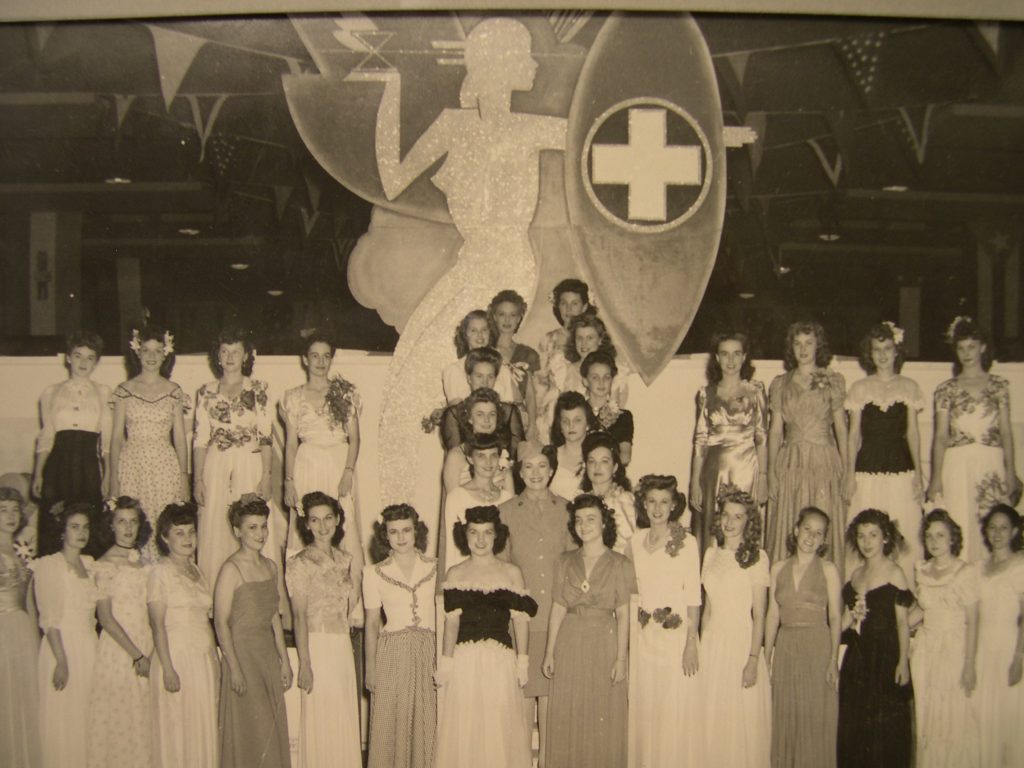[Interviewed by S. L. Sanger, from Working on the Bomb: An Oral History of WWII Hanford, Portland State University, 1995]
I was on a train on New Year‘s 1943 coming to Hanford, traveling with another gal, a WAC. We had stopped in Oak Ridge for a little indoctrination, and then came out here. Mr. Carpenter, the president of Du Pont, was on the same train, on his way to Hanford. He knew we were on the train, and he asked if we could come into his compartment and have a New Year’s Eve drink. I guess the train was somewhere in Montana, west of Glendive. We left his compartment door open and the military police kind of hung around, and we had a drink with him. He was a real gentleman. He was lonely, and he had pictures of his family and we told about our families. That was kind of a high-light of my Army career.
I came from Middletown, Ohio, between Dayton and Cincinnati. I enlisted in the Army because I was lonesome. Everybody was gone or married, and I was living with my mother. I left basic training at Daytona Beach early to come to Hanford with the Army Corps of Engineers. In those days, coming to Washington was like going overseas.
When I first came I was in military intelligence, as a secretary. After that I went with public relations, working with Milt Cydell who was head of that for the Corps of Engineers. Milt wrote the news releases for the project, and called on all the newspapers and kind of kept them happy so they didn’t get too inquisitive. He was a Seattle native and he knew all the people in the newspaper business in the area. He talked with reporters who called. He talked at length but he never said anything.
There was not much to do until they built the rec hall, and big name bands starting playing at Hanford. We worked nine hours a day, and that was pretty much it. Weekends, if we got a pass, we went to Yakima or Seattle or Portland. Usually four or five of us would get together and drive. After we moved from Hanford Camp to Richland, it was better because the married couples had houses and they entertained a lot. And, we had parties in our dorms.
At one time when I was in military intelligence I monitored phone calls. As far as I was concerned that was really cloak and dagger. I was supposed to find out if anyone said anything that sounded wrong. I didn’t know what I was listening for, except for anything that sounded covert or to find out if anyone were speculating about what was going on at the plant. I probably wouldn’t have known what they were talking about if they were talking about the bomb.
I remember when I won the beauty contest. I don’t remember how I was chosen, but there were 40 or more girls in it. I got $100 and an engraved loving cup. The cup fell apart. It was silver-plated and I suppose tin or some-thing that didn’t hold up very well.
In 1944, everyone was young here, and it was heavenly. The experience was once in a lifetime. You knew you were doing something important, but you didn’t know what.




